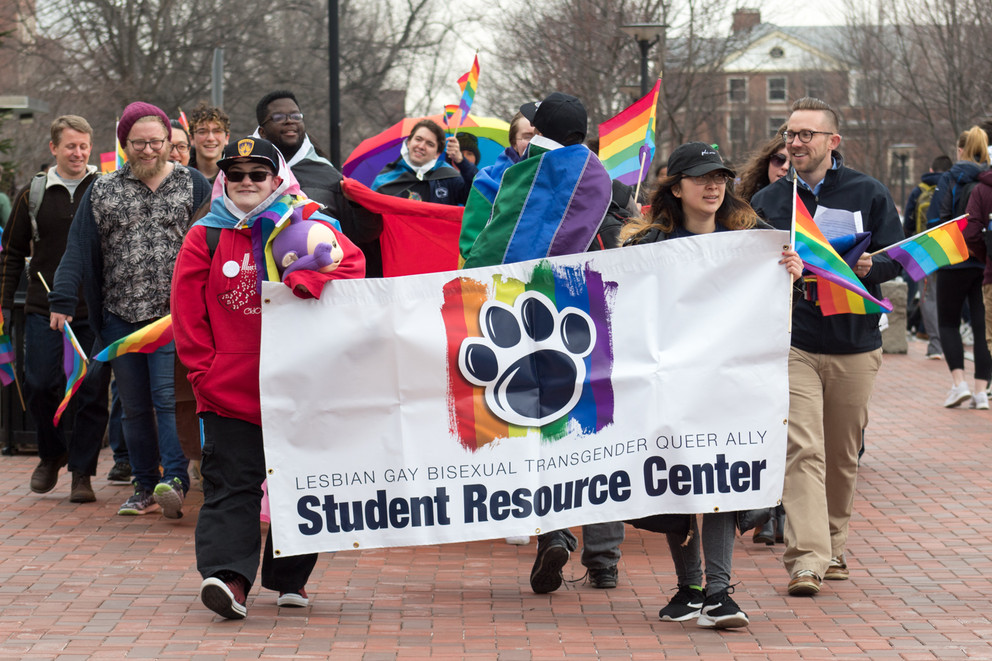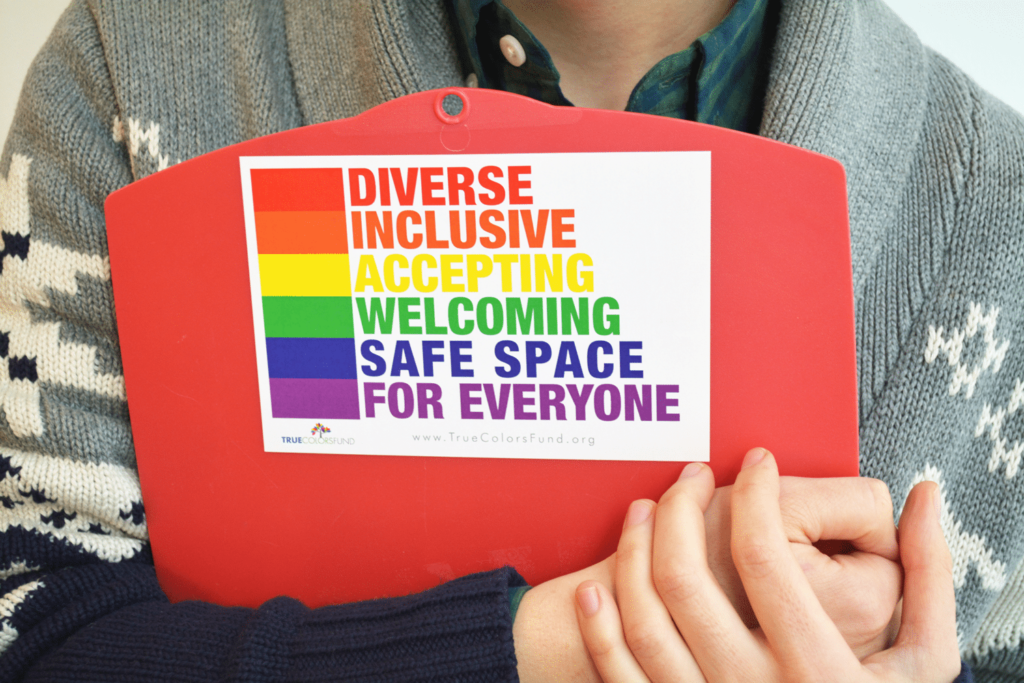In honor of Pride month, it’s only appropriate to talk about how community colleges can best support LGBTQ+ students on campus. Whether it’s providing resources or creating safe spaces, here’s our tips for creating a more inviting and safe campus for your LGBTQ+ students.
1. Pronouns

Establishing your pronouns is a great way to build inclusion because it invites others to tell you their pronouns and create a space where everyone’s gender identity is recognized and respected. There’s a few ways you can go about this:
- When first meeting someone or introducing yourself to a group, you can start by saying your name and your pronouns. By initiating this, you’ve set a precedent that the person or group you’re talking to should also share their pronouns, thus eliminating the need to ask them at all.
- Write your pronouns in your digital profiles. Put it in your email signature, school website profile, and on your online learning platform. This is great for when you’re communicating digitally so that students know your pronouns and how to talk about you. Even better is if you encourage your students to do the same so that you can be reminded of their pronouns as well.
- Lastly, just ask someone. There is absolutely no shame in asking someone nicely, “What are your pronouns?” As long as you’re polite and respectful, no one will be mad at you for asking. Make sure to follow that sentence verbatim, as it’s the most respectful way to ask. One example is the phrase, “How do you identify?” which invalidates transgender folk by implying that their experience is only in their head and only a matter of their opinion, not of fact. Another inappropriate phrase is “What are your preferred pronouns?” This also invalidates transgender people because it makes their pronouns seem optional, and correct pronouns are not optional. And lastly, do not ask people “What is your gender?” as not everyone identifies within the gender binary. Some people identify as agender, meaning they don’t identify themselves as having a particular gender. Others identify as nonbinary, meaning they don’t fit anywhere on the traditional gender binary.
TLDR: The best way to ask someone their pronouns is by simply asking “What are your pronouns?”
2. Organizations

Having an LGBTQ+ organization on campus is the best way to support students. One that’s open all the time and has an administrator in charge is best, but just having an LGBTQ+ club with an advisor works as well. Having a center or a group where students can meet and have a safe space to express themselves can be extremely helpful for LGBTQ+ students to feel supported on campus.
Having an LGBTQ+ center on campus with a professional advisor can help give students the resources and support they need to succeed while in school. Services such as mental health resources, contraceptives, support networks, and scholarships are often provided at these centers.
LGBTQ+ clubs work similarly, having weekly or monthly meetings where students gather to discuss LGBTQ+ issues, organize events, and just meet up to give each other support and encouragement. These can easily be formed by students by asking for a professor or administrator to agree to be in charge of the club and help them organize meetings and events.
3. Safe Space Labels

A growing trend in schools of all grades across the nation has been the use of a safe space sticker on classroom and office doors. Stickers like the one pictured above tell students that your classroom, office, or school entirely is a space where they are free to be themselves and will be respected by the faculty.
Many educators put these outside their doors as a sign that students can come to them with issues they’re facing in the classroom or their daily lives and find help. Whether they’re being bullied or disrespected by a fellow student or struggling to complete assignments because of an unsafe home life, it can be quite a lifeline to have a space where they can present these issues to their teachers and get the support in their education that they need.
Having an ally by their side can help students gain the resources they need and stay focused on obtaining their degree, so make it easy for them to know that you’re there for them.
Overall, being loud and proud allies is the best thing you can do for your LGBTQ+ students. Some students may not take advantage of these resources because they might not need them, but for the students that do, it can be the difference between dropping out and finishing their degrees.




